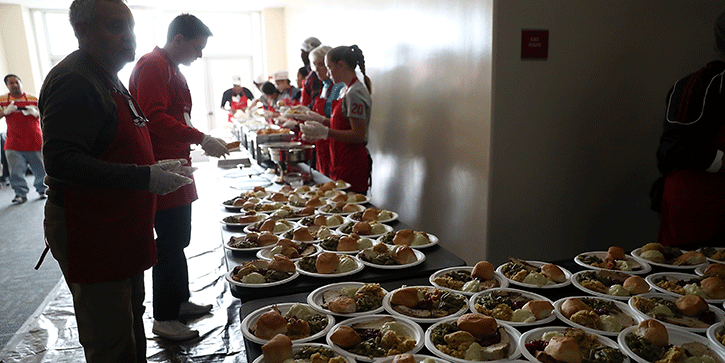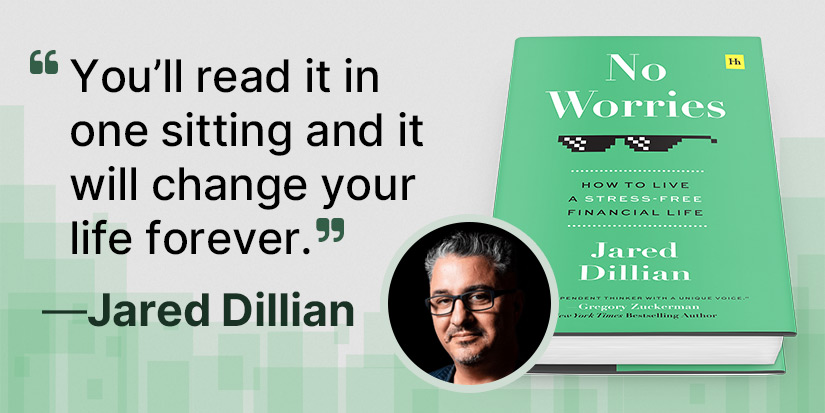
Karmically Speaking
-
 Jared Dillian
Jared Dillian
- |
- October 4, 2018
- |
- Comments
Let’s explore one of the most sensitive subjects in personal finance:
Charitable giving.
What people give to charity and who they give it to provokes intense personal feeling. I am not going to tell anybody what to give and who to give it to. I have one message to get across here, and I am going to save it for the second half of this piece.
If I were running for president, and you got a hold of my tax returns, you might say that I do not give very much to charity. Relative to most people running for president, I probably give a bit less. Relative to the rest of the population, I am probably average or a bit below average.
For years, I have given heavily to my high school and the gifted and talented camp where I met my wife. In middle age, I am rethinking my charitable giving. My high school seems to be going a direction I don’t entirely agree with, and frankly, the gifted and talented camp doesn’t need my money—especially when you consider who some of its alumni are.
So I have been thinking long and hard about what causes I really care about. If I am being honest with myself, I care about animal welfare programs more than anything else. My wife and I have said that if we won the lottery, we would Google every cat rescue and cat shelter in the country, and start mailing out $10,000 checks.
Nonetheless, my wife and I have the gifted and talented camp in our will. If we get greased by a cement truck, the gifted and talented camp is going to get a big slug of money.
I am not currently a member of a church. For years, I attended Episcopalian services, but I discovered that the South Carolina brand of Episcopalianism was a bit different from the Connecticut brand of Episcopalianism, and I was turned off by it. Probably just cultural differences.
My mortgage payment is pretty small and property taxes around here are cheap. I do not have a high cost of carry. Plenty of free cash flow to give to charity.
But I don’t. Why not? Am I a CF?
The Magic of Compounding
Lots of people out there (perhaps reading this newsletter) give 10% or more of their income to charity. That makes me uncomfortable, for the following reason:
It’s good to give some now, but you can give more later if you invest it and let it compound.
Listen to me carefully: we all like to do good in the world. It feels good to do good now, but if you wait, you can do even more good later. A form of delayed gratification, if you will.
Examples of this abound. Like Warren Buffett, who in his nine decades hasn’t donated much (relative to what he makes). But he’s going to give it all away in a giant lump sum at the end.
Bezos is doing something similar. Earlier this year, he sold a significant chunk of stock for the first time ever to give to charity. But not until he was already worth $150 billion.
Like what you're reading?
Get this free newsletter in your inbox every Thursday! Read our privacy policy here.
It is difficult to explain compounding to these people. Generally, I don’t try.
Most people give heavily during their peak earnings years, when they should be accumulating wealth. And then there is not much to give at the end, when they should be decumulating wealth. What is left usually goes to the kids.
I think it is better to give more sparingly during your peak earnings years, invest wisely, then give it all away at the end, like Warren Buffett.
My wife and I plan on flying first class plenty when we are in our 70s, but trust me, there are going to be some happy cats out there when we pass.
Give the Gift of Time
I have always thought that giving money is a poor substitute for giving time. Giving time is better than giving money. Getting personally involved in your charity is where it’s at. I have always been a bit uncomfortable with writing a check and absolving myself of further responsibility.
For someone like me, a man who has money but has no time, time is way more precious and valuable than money. It is the most valuable commodity.
Last week, a pilot friend of mine wrote me about teaming up to participate in a charity that transports animals by plane from crowded shelters (where there is no demand) to empty shelters (where there is high demand). We’re going to see if we can make it happen. I can spare a Saturday to save 10 cats.
Point is, there are a lot of different ways to be generous. Let’s try to be smarter about it.
subscribers@mauldineconomics.com
Tags
Suggested Reading...
|
|

 Jared Dillian
Jared Dillian

